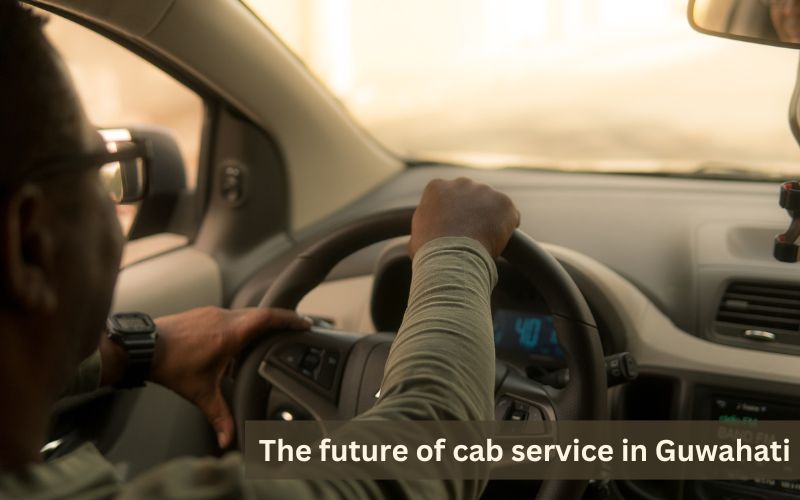
New cab rules by Assam Govt: Will it improve or further deteriorate service quality?
Woes of a commuter
If you’re a frequent user of app-based cabs in Guwahati, you’re probably well-accustomed with the woes of cancellations, extra charges and rude behaviours of the riders. The scenario is especially true when booking a bike ride. In some extreme cases, misbehaviour of the cab driver amounting to a threat to the security of passengers (mostly female) have also been noted. It would be dumb to assume that the authorities behind these app-based aggregators are unaware of the ground realities, as many of the passengers on the receiving end of the harassment make it a point to report their experience in the app. Unfortunately, we don’t see visible change in behaviour of the app-based drivers. It is not to say that the app-based aggregators like Uber, Ola and Rapido do not take such matters seriously. But, perhaps the measures taken by them to curb such menace are not enough.
As of now, it is common to encounter riders who blatantly overcharge, misbehave with customers when they do not get to have their way and cancel rides or pressurise customers into taking offline rides. The menace over app-based cab rides continues to go unchecked - a few contributing factors could be the customer’s unwillingness to come forward and take strict action, and app-based aggregators’ lack of robust training for their partner riders.
The other side of bad service
Looking at the customer side of the story, app-based cab aggregators have a very poor customer service ranking. Ask any frequent commuter and they will swear by the menace caused by the cab drivers in Guwahati city. However, very few among us are keen to understand the other side of the story.
What we do not see is that these app-based cab aggregators are catering to ample employment to the unemployed youths of our region. Most of these drivers belong to rural parts of Assam, who venture into Guwahati in want of better opportunities. Understandably, most of them lack the basic etiquettes and aren’t well-trained to handle sensitive customer facing circumstances. On top of that, a quick chat with these fellow drivers will reveal that some of the drivers are either not making enough from their jobs, or are not paid on time. For some, online transactions are completely new and they would rather prefer to run on cash.
Instead of having their concerns addressed in the proper way, we see most of them calling for strikes every now and then, arguing with customers for extra money, and outright refusing trips if they aren’t comfortable with the fare, distance or any other factor. Keeping emotions aside, one can conclude that these difficult scenarios stem out of a simple phenomenon - unprofessionalism. And the only way to address this is by educating drivers with robust training modules, understanding the bottlenecks faced by them and offering transparent solutions which address the root causes of these unpleasant scenarios.
New cab rules may disrupt service quality
In a recent announcement by the Govt. of Assam, private (non commercial) vehicles can also start to operate under app-based aggregators like Ola, Uber and Rapido - without changing the colour of number plates on the vehicles. This is aimed towards empowering unemployed youths and students toward earning some extra income, while capping the number of trips they are allowed to make in a day.
Understandably, such two-wheeler and four-wheeler vehicles will have to adhere to the yet-to-be-approved Assam Motor Vehicle Aggregator Rules 2022. But this will essentially imply that the fleet of app-based cab drivers will see a rise in educated youths joining in.
Most of these drivers with non-commercial vehicles can be expected to have a better education background, leading to lesser occurrences of unruly behaviour and higher chances of improved customer experience.
Can it put an end to poor service quality?
Although these new rules will open up doors of opportunities to youths with non-commercial vehicles to earn on the side, the majority of the fleet will continue to comprise the rural youths operating commercial vehicles, for whom such app-based aggregators generate the main source of income.
This implies that in addition to the Govt.’s introduction of new cab rules (for promoting employment), the onus is still on the app-based aggregators to incorporate robust training for their partner riders. Authorities should also take note that the inclusion of non-commercial vehicles to the fleet of cab services may cause disparity and unrest among the existing drivers.
Strategic measures need to be taken to address the above-mentioned issues. The bottom line is that the improvement (or downfall) of cab services in Guwahati will determine the future of app-based aggregators operating in the city. And with that, the success (or redundancy) or such new rules will also be measured. The question is, will the Govt. and the authorities behind these services take accountability in mending the broken service quality currently being served to commuters?
Disclaimer: The opinions expressed in this article are those of the author's. They do not purport to reflect the opinions or views of The Critical Script or its editor.

Newsletter!!!
Subscribe to our weekly Newsletter and stay tuned.

















Related Comments